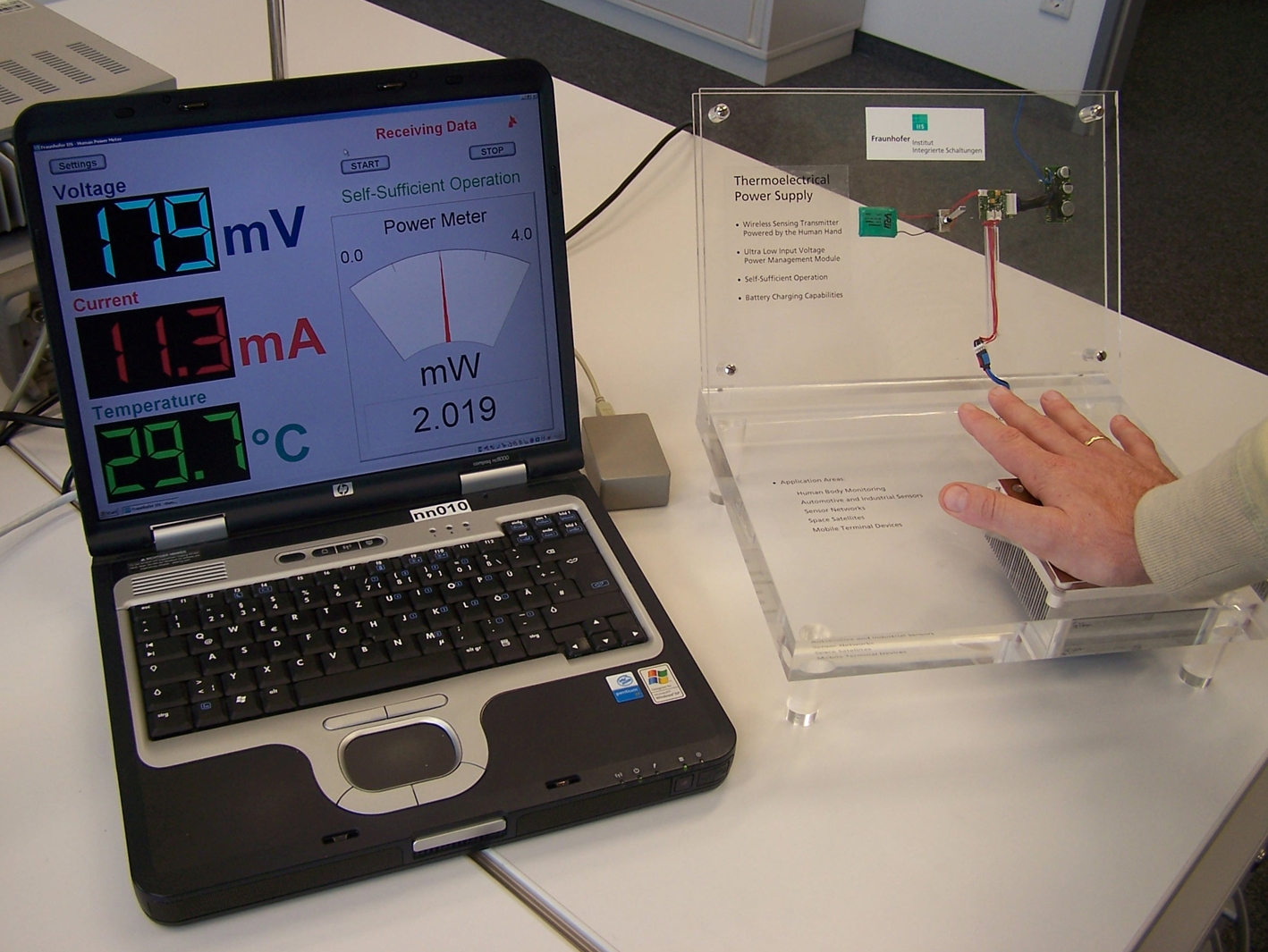How to generate electricity from body heat
Body heat to power electric devices

German scientists have found a way of transforming body heat into electricity using circuitry.
The discovery means that we may be able to operate our mobile phones using nothing but the warmth of our hands in the future.
New circuits make it possible to harness body heat for generating electricity, scientists at the Fraunhofer Institute found. This could prove particularly useful within the world of medicine - especially in hospitals.
Medical equipment used to measure bodily functions such as a patient's heart rate, blood pressure, body temperature, pulse or breathing rate are normally attached piece by piece to the patient. All require their own electricity supply. This normally creates a spaghetti-like mess of cables next to hospital beds.
Drawing power from human body
In the future, this equipment could function without electric power, instead drawing all the power needed from the warmth of the human body. The respective data would be sent by a radio signal to the central monitoring station.
The technology behind the discovery works on the principle of thermoelectric generators, or TEG, made from semiconductor elements. The TEGs extract electrical energy simply from the change in temperature between a hot and a cold environment.
The difference in temperature between the human body and its surrounding environment is only a few degrees, which would normally produce only around 200 millivolts. This isn't enough to power electronic devices which would normally require between 1-2 volts. But the scientists found a way around this problem.
Get daily insight, inspiration and deals in your inbox
Sign up for breaking news, reviews, opinion, top tech deals, and more.
New combinations
"We combined a number of components in a completely new way to create circuits that can operate on 200 millivolts," said Peter Spies, manager of this project at the Fraunhofer Institute.
"This has enabled us to build entire electronic systems that do not require an internal battery, but draw their energy from body heat alone," Spies said. He added that circuits that work at 50 millivolts already exist.
In the future, temperature differences of just 0.5 degrees will be sufficient to generate electricity, Spies predicted.
There's a wide range of possible applications for this technology. "Electricity can be generated from heat any place where a temperature difference occurs," Spies said.
"That could be on the body, on radiators to meter the heating costs, when monitoring the cooling chain during the transport of refrigerated goods, or in air conditioning systems."